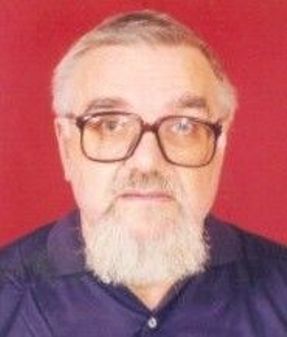Daniel Comboni
Comboni Missionaries
Institutional area
Other links
Newsletter
In Pace Christi
Parise Giuseppe
Giuseppe Parise was born in Marostica (Vicenza) in 1947. He had a huge build and an extremely timid and reserved character. He looked like a giant; however throughout all his life he always had fragile health. He was a man with a vocation strongly tied to the earth and creation. One cannot speak of Bro. Giuseppe without talking about bulls, cows, heifers, calves, sheep, pigs, ducks, geese, turkeys, hens and eggs, chickens, pigeons, rabbits, donkeys, fish, and beehives, not to mention wells and pumps to irrigate lemons, mangoes and orange trees, vegetables of all kinds and so on.
At the age of 18 he entered the novitiate of Florence where two years later, in 1967, he professed his first vows. Then he went to Pordenone for three years to learn mechanics.
Bro. Giuseppe spent his entire missionary life in North Sudan where he arrived for the first time in 1970. After an introduction of two years at St. Joseph Technical School in Khartoum to study Arabic, he was assigned to El Obeid for a period of 19 years.
In 1974 he was in Limone, Italy, to make his perpetual profession. On that occasion he prayed: “I thank you, Lord that I am here today together with many brothers in the church where our Father Comboni received the seed of faith. Thanks for having led me along his path in the land that he always loved, right up to when he sacrificed of his life for it”.
In El Obeid Bro. Giuseppe took up various commitments for the diocese: particularly the mechanic workshop and the Benjadid farm project. The last two years in this diocese he was transferred from the Bishop House to the new Comboni House opened on 1st January 1988.
In 1989 a new chapter began in the life of Bro. Giuseppe, which was to last for ten years. He was called to Khartoum, at Kobar, to be the bursar at the new major seminary. During this period Bro. Giuseppe entered in contact with all those who today constitute the Sudanese local clergy. There he was very much appreciated for his ability to take proper care of the food as well as for being their companion and guide to the point that some seminarians chose him as their spiritual director. Meanwhile, taking advantage of the good piece of land of the seminary next to the river Nile, he built a farm and a vegetable garden.
After a renewal course in Rome, Bro. Giuseppe was happy to go back to Sudan and in the year 2000 was assigned again to El Obeid. There he was put in charge of the Comboni House, but paid particular attention to the Malbes project, a place historically linked to Comboni. It was planned to develop there a Centre of spirituality, but the project never materialised, due also to legal complications.
In 2005, with his assignment to the community of Nyala in Darfur, Bro. Giuseppe started to take care of an abandoned garden a few kilometres outside the town, but the war in Darfur, however, and the presence of the Janjaweed militia in that area made the place more and more dangerous and difficult to reach.
In July 2009 Bro. Giuseppe asked to anticipate his holidays because he was feeling extremely weak; he even doubted whether he could carry on the work. When in Italy, in autumn 2009, it appeared that he had the symptoms of a rare sickness called “myasthenia gravis”: ptosis, with general weakness, difficulty in holding his head up and in masticating. He was treated but the gravity of his sickness remained. Bro. Giuseppe, though, insistently asked to go back to Sudan.
So, at the beginning of 2010, Bro. Giuseppe was assigned to the community of Port Sudan, with great recommendations to take care of his health. In spite of his sickness, which obliged him to have constant checkups and to work slowly, he was eager to give his contribution. He was put in charge of different services to the community, like taking care of the kitchen. He completed the building of the centre of Suakim. Lately he had started some works of maintenance and restructuring of the house.
Early on the morning of 18th April, 2011, Bro. Giuseppe was found to have great difficulty in breathing. He was immediately taken to the hospital. In the evening the situation deteriorated and he was transferred to the intensive care unity of a different hospital. Here he entered in a state of coma and after a few hours passed away.
The following day the faithful of Port Sudan attended the funeral in good numbers and accompanied Bro. Giuseppe to the Christian cemetery where he was buried near Bro. Andrea Eleuterio, who had also passed away in Port Sudan ten years earlier.
Bro. Giuseppe was a great example for us for his great love towards his missionary vocation and his religious consecration. In his correspondence, it is not difficult to find simple sentences from which transpires his trust in God, his desire to pay more attention to his spiritual life and personal prayer and his struggle to overcome himself and to fight against human shortcomings towards brotherly reconciliation and holiness.
(Fr. Angelo Giorgetti)
Da Mccj Bulletin n. 249 suppl. In Memoriam, ottobre 2011, pp. 68-72.

